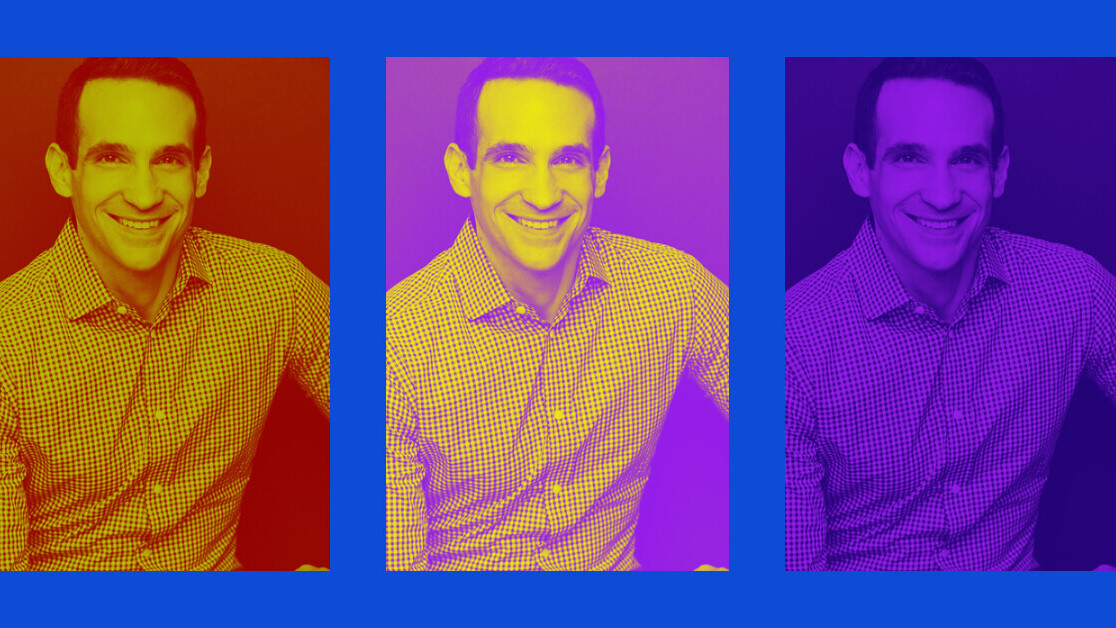
Did you know Nir Eyal, the productivity expert who helped us with this piece, is speaking at TNW2020 this year? Check out his session on ‘Indistractable: How to Control Your Attention and Choose Your Life’ here.
For better or worse, the coronavirus pandemic has forced on us the world’s biggest work-from-home experiment.
While working from home might be new to a lot of people, author and psychology expert Nir Eyal has had a head start. “I first began working from home about six years ago, and it wasn’t an easy transition at all,” Eyal tells me. “Between work and homeschooling my daughter, I found it was almost impossible to get anything done.”
[Read more: ]
Eyal’s not the only one dealing with this problem. Although remote work is often bandied about as a job perk, and generally associated with heightened performance and employee happiness, experts have pointed out having no choice but to work from home can turn into an absolute productivity disaster — and the data proves it.
On the upside, though, he’s had lots of time to practice. So much so, he wrote a book — dubbed ‘Indistractable‘ — about the challenges of staying focused and the psychology behind what distracts us.

“The good thing about the struggle to stay productive is I’ve learned it’s something we can manage,” he adds. But to do that, we first need to get to the bottom of what’s diverting our attention.
Understand why you get distracted
“Technology didn’t invent distraction,” Eyal tells me. “The reason we procrastinate is not because of the things around us. The philosopher Plato was talking about distractions 2,500 years before the iPhone.”
To Eyal, the problem is simple. “The root cause of distraction is our desire to escape discomfort,” he says. And with COVID-19 around, there’s plenty of discomfort to avoid.
“The state of the world right now has increased what we call internal triggers, these uncomfortable emotional states that we seek to escape from,” Eyal explains. “Another big change as a result of the coronavirus is now that our routines have been torn apart, our schedules have blown up.”

Even though routines help us better manage our time and goals, we’re wired to resist them. Since we’ve come to associate routines with the tedium of repetition, we’ve developed an aversion towards them — and with that, a dislike for taking charge of managing our time. Unfortunately, that’s a recipe for disaster when it comes to avoiding distraction.
“Routines and planning your schedule in advance is an essential practice for squeezing more out of your time,” Eyal says. “That’s a key part of getting into a state of traction — a term I use as the opposite of distraction.”
Use technology (but don’t let it control you)
While Eyal firmly believes in the usefulness of technology, he’s quick to concede it can also be distracting. But he thinks it’s ultimately our responsibility to use technology to our advantage and not let it dictate our lives.
“Now that a colleague can’t stop by our desk, we have a whole new set of interruptions to worry about,” he tells me. “I call such distractions external triggers — anything from email notifications to our kids interrupting us during work. With coronavirus, all of the external triggers we’ve previously come to expect have now changed.”
According to Eyal, one strategy to counter the pull of external triggers is to “use technology to prevent getting distracted by technology.”
A simple adjustment anyone can make is to tweak your notifications settings so you can devote all of your attention to the task at hand. Sure, it’s important to clear your inbox, but doing it at the wrong time can actually turn into a distraction.
Another quick fix is to learn how to use your app’s productivity features to your advantage. While it’s generally good to be reachable, sometimes it can be helpful to indicate you’re busy with another task. Make sure to let your colleagues know when they can reach you again, though.
Forget about the to-do list
Steering clear of bad habits disguised as productivity hacks is another important step towards mastering control over your distractions.
So when I asked Eyal about some common productivity “solutions” that often end up distracting us even more, he wasted no time identifying a common culprit: the to-do list.
“It’s pretty much the worst thing you can do for your personal productivity,” he continues. “People have been told you have to put everything on a list and then run your life on that list — and that’s exactly what you should not be doing.”
But that criticism comes with a huge asterisk. “It’s not the habit of keeping track of what you need to do that’s bad,” Eyal explains. “What I think ends up killing people’s productivity is waking up and turning to their to-do list instead of their calendar. Because most people tend to start with the things they easy, urgent, or fun — and the important things never get done.”
“We chose the urgent at the expense of the important,” Eyal adds. Seeking to check off meaningless, menial tasks off your to-do list is still a distraction, though, especially when you still have that big project to complete.
“Instead of running your life with a to-do list need to run your life with a calendar,” Eyal tells me. But he’s quick to point out not every calendar will do. “You need a timebox calendar.”
For those unfamiliar, it’s a special kind of calendar (like Google Calendar) that helps you more effectively compartmentalize your schedule, and focus on what you need to get done at the specific time you’ve allocated for it. It’s also a nifty way of avoiding guilt-tripping yourself during your leisure time.
“There’s nothing wrong with checking your email if that’s the work you need to get done,” Eyal says. “But if your calendar says you should be playing video games with your kid, then checking your email would be the distraction,” he adds. “So you should instead focus on enjoying the moment.”
Get the TNW newsletter
Get the most important tech news in your inbox each week.




